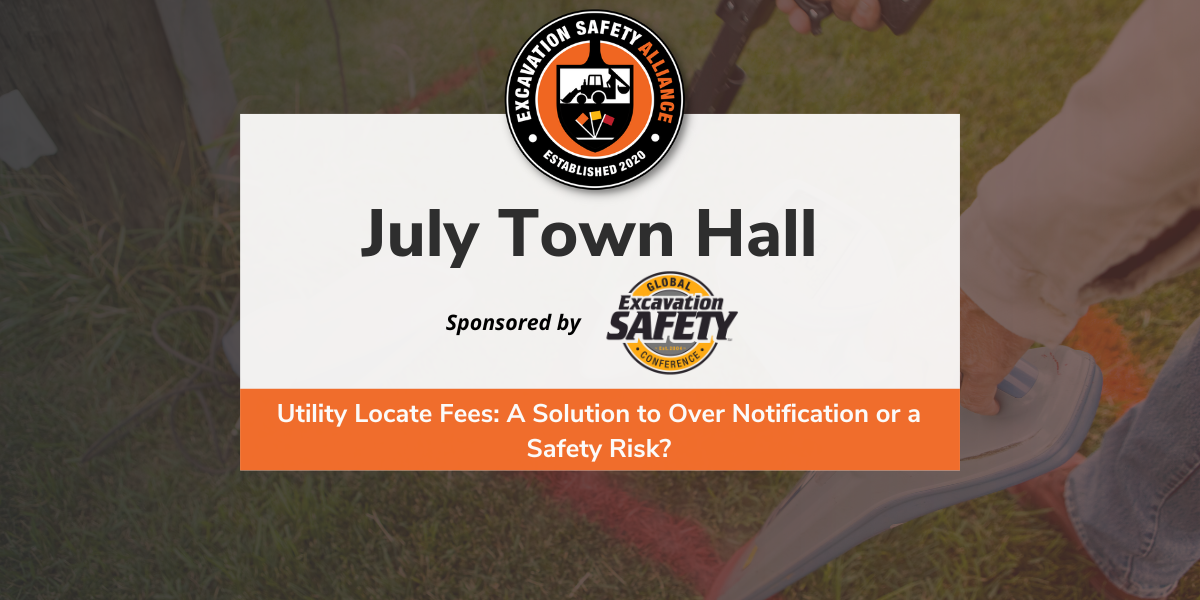
Hello, Readers!
On July 13th, we held a Town Hall sponsored by Global Excavation Safety Conference, which discussed the intriguing topic of Utility Locate Fees: A Solution to Over Notification or a Safety Risk? This topic, at the heart of the damage prevention industry, sparked a lively discussion among our panelists and audience alike. In fact, it was probably our most interactive Town Hall to date.
Missed the live Town Hall? No worries! We've got you covered. Catch up on all the robust dialogue that occurred by watching the full video.
The discussion ranged from the current state of utility locates, to the potential benefits and drawbacks of shifting the cost burden from utility companies to excavators, and much more!
Here are some of the compelling questions that were discussed:
- Could you clarify whether the locates are currently free of cost, and if not, who is bearing this expense?
- How might shifting the cost of locate fees from utility companies to excavators help reduce the issues of late locates and backlog problems in our industry?
- Could you provide us with an overview of the Dedicated Locator Program in Ontario and its impacts on utility locate efficiency?
- Could you shed some light on the volume of tickets generated and how it's affecting the efficiency of utility locating?
- Could you elaborate on the importance and scope of training in the utility locating industry?
- How does NULCA certification contribute to the effectiveness and safety of utility locating work?
Other insightful comments that were brought up by our audience include:
"There are two fundamental problems with incentives. One, Locates are free to the caller/excavator. Free resources are over-consumed. Two, Contract locators are paid based on activity (usually per locate) and not on outcomes. It's a problem with the game/rules and not the players."
- Jemmie Wang, BizMetrix, LLC"When an excavator profits from a dig project, it is important for them to bear the costs of both public and private locates. By doing so, a financial agreement is established between all parties involved, promoting accountability and reducing the likelihood of damages. I speak from personal experience as the owner of a private locate company since 2004, where damages have been infrequent. When the responsible party covers the expenses for locates, the contractual document serves to define and enforce rules for all parties involved."
– Grant Piraine, Premier Locates Inc.
Intrigued by these questions and comments? Watch the full Town Hall video.
We hope you enjoy it and look forward to hearing your thoughts!
Don't forget to sign up for August's Town Hall titled, How Can We Improve Excavation Safety With Fair Enforcement? This Town Hall will occur on Thursday, August 10th at 10:30 AM CDT. See you there!
Comments